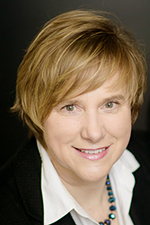Mediators at Family Matters have noticed an increasing trend for people who have been identified as being on the autistic spectrum, including Asperger’s syndrome, or having autism, enquiring about mediation.
Autism is a disability that affects how a person experiences the world around them and how they relate and communicate with other people. It is a lifelong disability, not a condition that can be cured. Sometimes people with autism also have learning difficulties, as do those with Asperger’s syndrome, but the latter are often of average or above average intelligence.
However, being autistic doesn’t stop a person from seeking mediation help. In fact, Family Matters’ managing director and mediator, Juliette Dalrymple, says:
“It is entirely possible for someone with cognitive disabilities to attend mediation with support, although it must be planned carefully.”
In a recent case, a couple, Ann and Tim, came to see Family Matters for help. Ann, who is assessed as being on the autistic spectrum had support from Voiceability, a Doncaster based support group. Tim agreed to this and said he didn’t wish to bring his own support. Mediators spent longer than usual in the initial meeting with Ann on her own to make sure she could take part. They also spent the same amount of time with Tim so he didn’t think Ann was being favoured. The case took a little longer, as the mediation meetings were stopped half way through to give Ann time to talk to her support worker on her own and think about what she wanted to say.
In this case, our mediators were careful to write out the summary after each mediation session in language that was easy for Ann and Tim to read. With Ann’s and Tim’s permission, we sent a copy to the Ann’s support worker.
As Ann and Tim were funded with legal aid, they could also both access a session of legal advice. We were able to identify resources and support for Tim and Ann so they could talk about housing once the family house was sold. With the help of our mediation, they reached agreement about their daughter, Kelly, and about the financial arrangements for the house.
Juliette said:
“There is increasing understanding that people who may be perceived as being “difficult’, or odd, have different ways of thinking and understanding, and seeing the world. In mediation these issues can be identified and measures put in place which means that both people can participate fully.”
For further information, or to book a mediation session, please contact us now on 03300 881440 or email admin@familymattersmediate.co.uk. Or, you can ask your support organisation to book a session for you.
You can find out more about how mediation works on our web pages.




